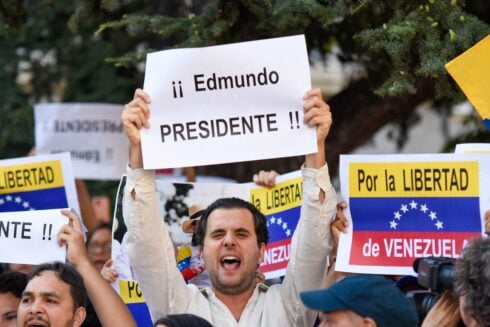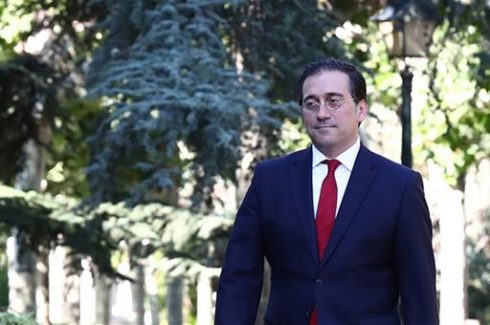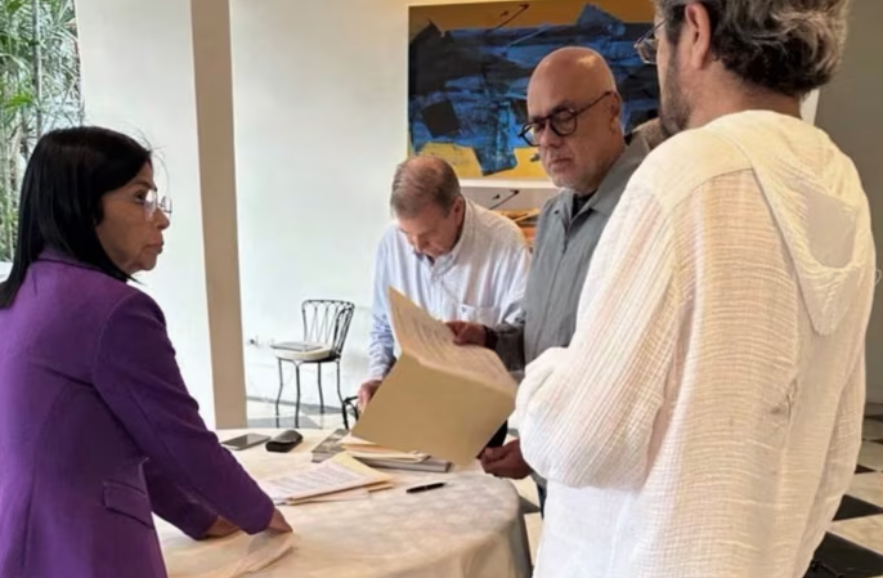THE Spanish government has denied allegedly facilitating the exile of Edmundo Gonzalez after the Venezuela opposition leader, who arrived in Madrid over a fortnight ago, claimed he was forced to sign a letter in the Spanish embassy accepting Nicolas Maduro’s disputed claim of election victory.
Gonzalez, a former diplomat who is 77-years-old and has health problems, left Caracas on September 7 to flee to Madrid, where he was greeted by Pedro Sanchez, the Spanish prime minister.
Gonzalez’s supporters, and numerous international commentators, claim he was the clear victor in a July election against Maduro, the incumbent president.
The regime-controlled national electoral council announced in the aftermath of the election that Maduro, who has ruled the country with an iron fist for over a decade following the death of Hugo Chavez, had won in a landslide to secure a third term.
However, the opposition published receipts from 80% of the voting machines used in the election which indicate that Gonzalez himself may have won in a landslide, potentially verging on 70% of the vote.

Maduro’s version of events has been accepted by Iran, North Korea, Russia and China, but not the west.
Now, Gonzalez has claimed he was forced to sign a letter formally recognising Maduro’s victory as a condition for being allowed to leave Venezuela, where he and his supporters believed he would have been subject to arrest.
He claims he signed the letter under ‘coercion, blackmail and pressure’.
Maduro’s government published a series of photographs of what they claim is Gonzalez signing the document inside the Spanish embassy’s residence in Caracas, where he was seeking political asylum, with the Venezuelan vice-president, one of Maduro’s top political fixers and the Spanish ambassador to Venezuela, Ramon Santos, all present.
The leader of Spain’s conservative opposition, Alberto Nuñez Feijoo of the Partido Popular (PP), has called for the resignation of Spain’s foreign minister Jose Manuel Albares in the wake of the revelation, saying that Spanish diplomacy ‘cannot be at the service of a dictatorial regime’.
The Spanish government has rejected suggestions that it was ‘complicit’ in forcing Gonzalez’s exile, which has weakened the Venezuelan opposition and strengthened Maduro’s hand.
“The Spanish government, and of course the ambassador, did not take part in any negotiation of any document of any type”, Albares insisted.

The fiasco is the latest in an ongoing row between Spain and Venezuela which has worn on since the conclusion of July’s election.
Diplomatic relations between the countries’ two governments plummeted after a government minister branded the South American nation as a ‘dictatorship’.
In response, the Venezuelan government recalled its ambassador to Spain and summoned the Spanish ambassador to appear at the foreign ministry in the wake of the comment, which was blasted by a minister as ‘insolent, interventionist and rude’.
Spanish defence minister Margarita Robles, whilst discussing repressive regimes worldwide, spoke of the ‘men and women who have had to leave Venezuela precisely because of the dictatorship they are living through’.
Elsewhere, Spain’s Congress voted to support a motion proposed by the conservative opposition that formally recognised Gonzalez as the rightful president-elect.









